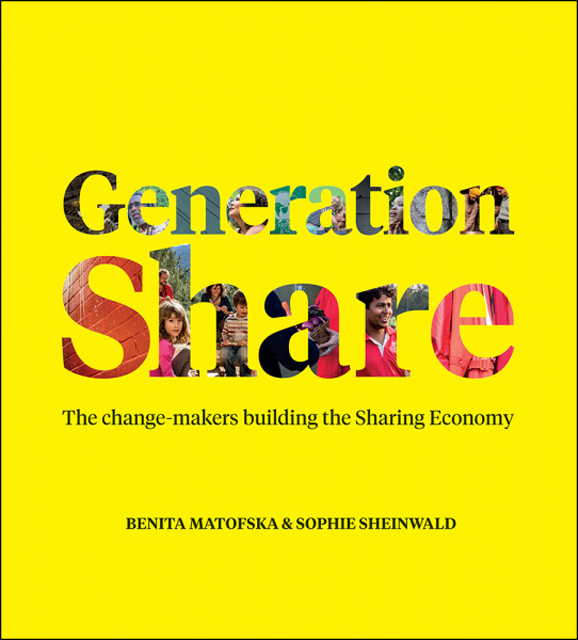Book contents
- Frontmatter
- Dedication
- Miscellaneous Frontmatter
- Contents
- Our Sponsor
- What Is The Sharing Economy?
- Does Age Matter?
- Sharing By Gender
- Sharing The City
- Sharing The Countryside
- Sharing The Money
- Is Sharing Cultural?
- Sharing And Disability
- The Geography Of Sharing
- Conclusion
- Notes
- Generation Share demonstrates the power of Sharing. The change-makers show just what’s possible – now it’s your turn. What can you share? How can you make a difference?
Sharing And Disability
Published online by Cambridge University Press: 14 October 2022
- Frontmatter
- Dedication
- Miscellaneous Frontmatter
- Contents
- Our Sponsor
- What Is The Sharing Economy?
- Does Age Matter?
- Sharing By Gender
- Sharing The City
- Sharing The Countryside
- Sharing The Money
- Is Sharing Cultural?
- Sharing And Disability
- The Geography Of Sharing
- Conclusion
- Notes
- Generation Share demonstrates the power of Sharing. The change-makers show just what’s possible – now it’s your turn. What can you share? How can you make a difference?
Summary
One thing that’s nice about being disabled is that it makes you aware of your own dependence on other people. I can’t get dressed, go to the toilet or eat without assistance. Of course, no one else can either, right? We invisibilise the sewage worker, we invisibilise the people who make the clothes, they are somewhere else, but your dependence on them is enormous. Sharing is just very visible when you’re disabled.
Jacob Berkson, founder, Thousand 4 L1000
For Jacob Berkson, a 36-year-old campaigner for migrant rights, Sharing is an all too pertinent subject. Following a severe spinal cord injury at the age of 21, he has to share his daily life with a carer who helps him with his basic needs. He believes that we all share every single day, we just might not know it. Indeed, this ‘invisible sharing’ is precisely what his campaigning group, Thousand 4 £1000, which crowdfunds rent for refugees, seeks to make visible to the wider public.
In November 2017, disability activist Annie Segarra started a Twitter campaign using the hashtag #InvisiblyDisabledLooksLike to mark the end of Invisible Disabilities Week. She invited people to share their photos, to challenge perceptions and make their stories known. Seventy-four per cent of people with disabilities do not use a wheelchair or anything that might visually signal their disability and about 1 in 5 people worldwide are disabled. Less likely to find employment due to discrimination, people with disabilities are twice as likely to live in poverty.
The Sharing Economy helps to bring ‘visibility’ to the ‘invisible’, enabling an understanding that our biases (conscious or unconscious) lead to discrimination and inequality. But it’s also about understanding that, as Jacob Berkson suggests, none of us could lead our lives without the hidden sharing that happens continually.
When we make assumptions based on biases and exclude others by engaging in non-sharing behaviour, we contribute to the problem. It’s by making evident and understanding these connections (like car use and consumption leads to pollution, poverty and homelessness), by ‘internalising our externalities’, that we can start to build a truly transparent Sharing Economy, where everything is counted, connected and seen; where the impact of our actions or inactions are understood.
- Type
- Chapter
- Information
- Generation ShareThe Change-Makers Building the Sharing Economy, pp. 243 - 256Publisher: Bristol University PressFirst published in: 2022



